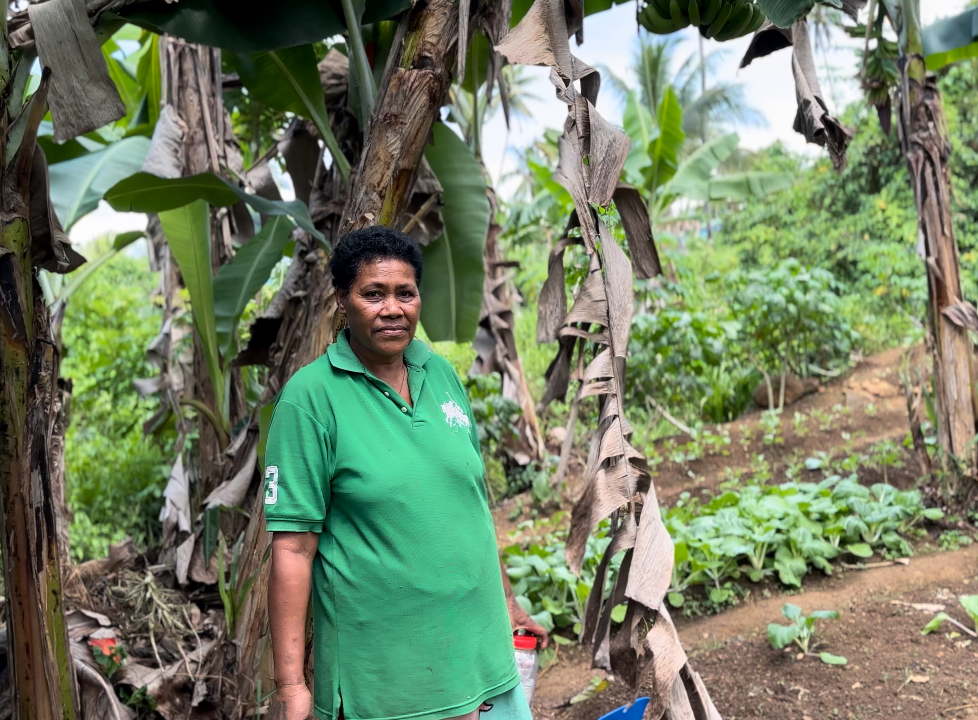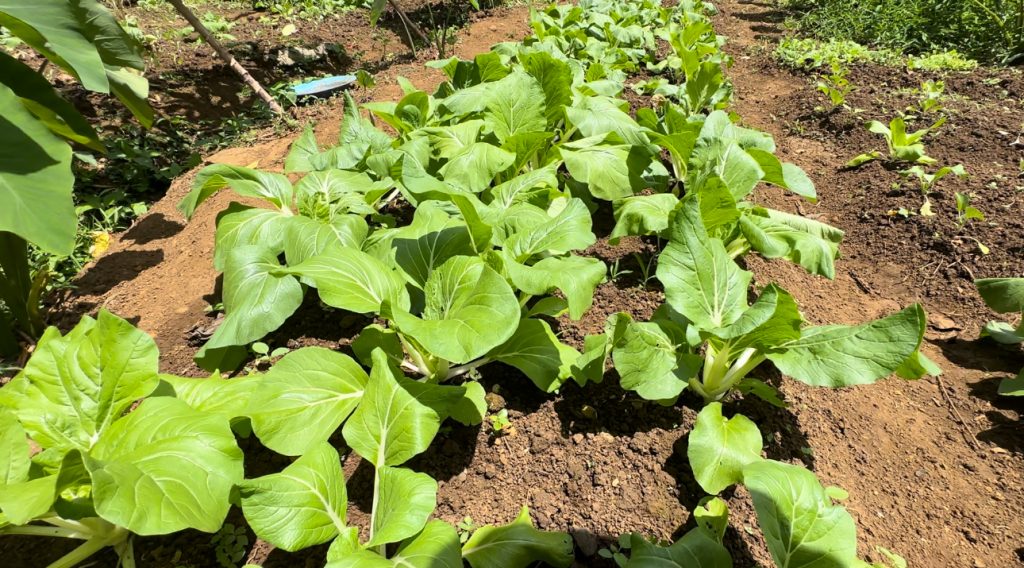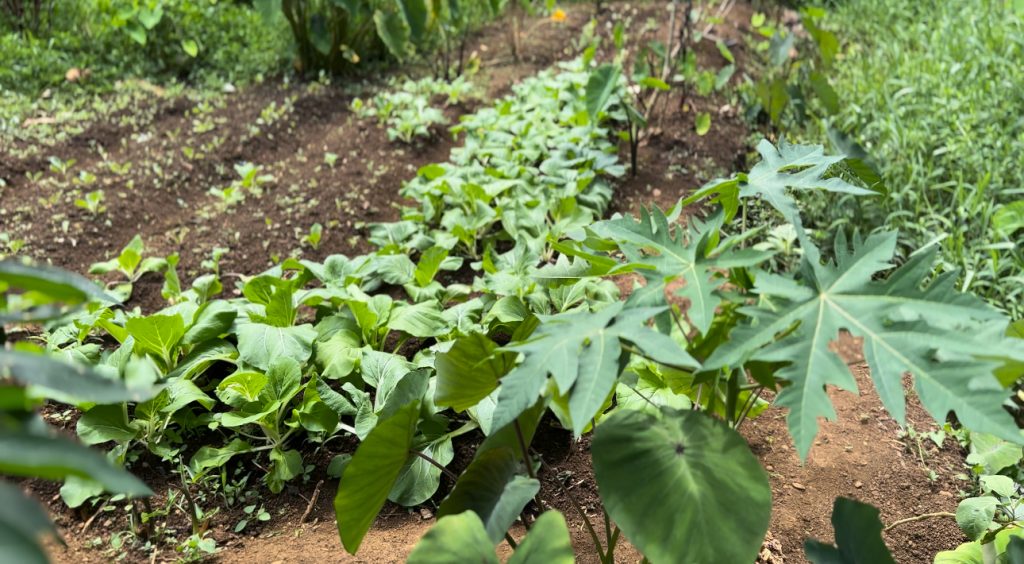Asenaca Earns from Selling Vegetables

Vegetables selling business is now thriving for 55-year-old Asenaca Titikula, despite of the remoteness of her community in Nakorotiki in Bua.
It all started from her participation in the Climate Smart Agriculture Training conducted in the area by the Adventist Development and Relief Agency (ADRA) Fiji which enhanced her knowledge in agriculture motivating her to invest her time into planting vegetables.
The training, which was part of the Learning Environmental Adaptation Project (LEAP) in Fiji supported by the USAID through the Pacific American Fund, has led to new opportunities for the family to support their livelihood through income generation and food and nutrition security.
“Au vakavinavinaka vei ADRA ena vuli e mai cakava ni tosoya cake na noqu kila. Au dau teitei voli mai ia e sega sara vei au na kila kau sa mai yacova tu ni kua. Na noqu vuli oti mai au mai wasea sara vei neitou Ta ka keirau sa duavata saraga me keirau sa tei kakana draudrau me dua tale vurevure ni neitou lavo me vaka ni taura toka e dua na gauna balavu na tei yaqona kei na dalo.”
(I thank ADRA for bringing this training as it enhanced our agricultural knowledge. In fact, I have been involved in vegetable farming, but the practical skills and knowledge gained from this training are of another level. After the training my husband and I agreed that we needed to take up vegetable farming as a source of income because of the fast cash return compared to kava and taro which take longer to harvest.)
And this initiative has become a family affair. They now have two vegetable farms – one at their yard and a bigger one located about 20 minutes’ walk from their home. Her children, who are both in school, helped with watering and cleaning of vegetable beds while her husband assist with land preparation.
Asenaca shared that the first sale came from 3 plots of cabbage which she harvested which she earned $95 from it. Living by the roadside, she only placed 3 bundles at a shed they now have for their business – this attracted many buyers who frequent the area going to the nearby school, health centre and post office.
Apart from the income earned, she said her children have been taking healthy lunches to school too.
Her farm has a variety of vegetables including English and Chinese cabbages, cucumber, capsicum, varieties of beans, eggplants, tomatoes, carrot, cauliflower, and max melon.
“Au sa vulica na kena I walewale ni teitei – mai na vakayagataki ni vakabulabula ni qele me yaco kina veika e vakarautaki me tarova na kana ni manumanu. Keimami vakarautaka saraga I vale – sega tale ni vakayagataki na wainimate mai na sitoa.”
(We are now into organic farming. We learnt how to prepare your own composts and liquid manure as well as insect repellents. All these – we prepare at home, and we no longer use chemical fertilizer)
The U.S. Government, through the United States Agency for International Development (USAID), awarded US$950,000 Pacific American Fund grant to ADRA Fiji’s Learning Environmental Adaptation Project (LEAP) to enhance the quality of life for 50 local communities in the northern division.
Supported by USAID’s flagship small grant facility, the Pacific American Fund, ADRA Fiji through the LEAP project, works to improve the resilience and adaptive capacities of subsistence farmers, both women and men, in vulnerable communities in Bua and Macuata Provinces.





